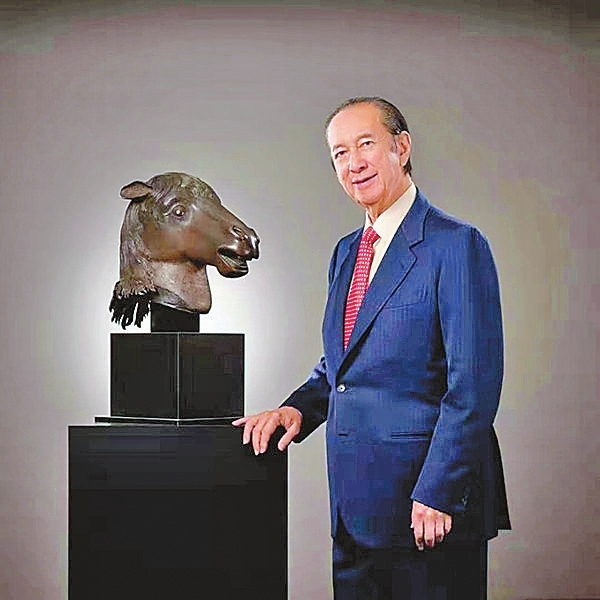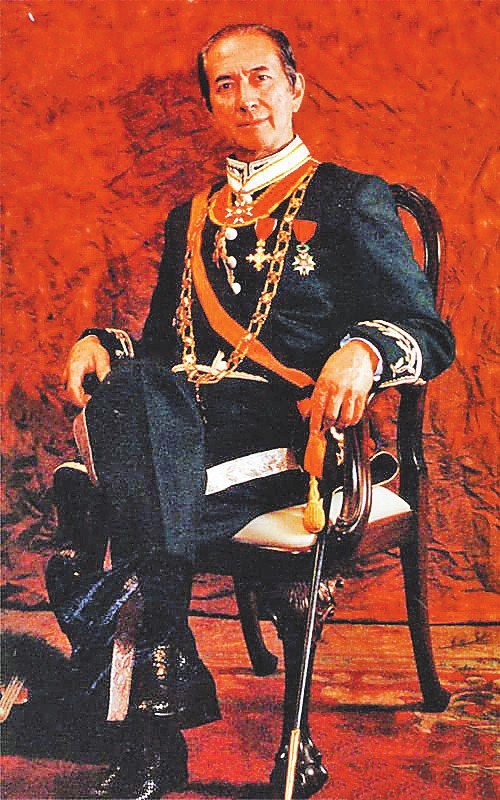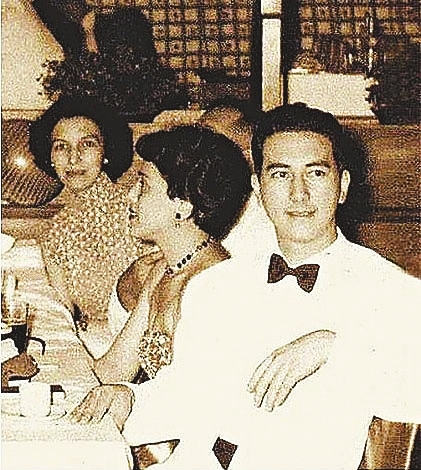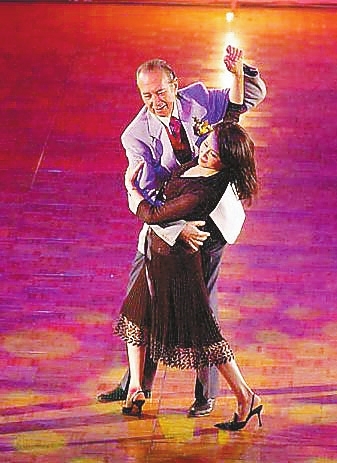




THE Hong Kong-Macao magnate Stanley Ho, a one-time kerosene trader who built a casino empire in Macao that propelled the Chinese island past Las Vegas as the world’s biggest gambling hub, has died at 98. Health issues of the long-reigning “king of gambling” had been widely documented — in recent years, he reportedly suffered Parkinson’s disease, kidney failure and a stroke. Ho had been keeping a low profile after a serious fall in 2009 at the age of 87 which left him requiring brain surgery. On Monday, local press reported that Ho was in poor health at the Hong Kong Sanatorium & Hospital, where he died the following day. Tributes have poured in for the Macao casino patriarch. Hong Kong Chief Executive Carrie Lam Cheng Yuet-ngor issued a statement expressing her deep sorrow at Ho’s death. The Liaison Office of the Central People’s Government in Macao expressed deep sorrow over his passing and extended deep condolences to his family. Macao Chief Executive Ho Iat Seng sent a letter of condolences to Ho’s family. He praised Ho for his lifelong dedication to public welfare and for his significant contribution to Macao’s prosperity and stability. The renowned businessman made great contributions to his motherland in terms of economic development, culture and charity, and was hailed as a patriotic businessman. He was well respected for his achievements in many areas, including being one of the first entrepreneurs to invest in the Chinese mainland when the nation embarked on reform and opening up in the 1970s, his generosity to charities and donating money to build schools. Being an eminent figure, Ho was met by China’s top leaders many times and witnessed some historic moments of the country including China’s negotiations with Portugal and the U.K., and the return of Hong Kong and Macao to the motherland, respectively, in 1997 and 1999. Ho served as a member of the Standing Committee of the ninth, 10th and 11th National Committees of the Chinese People’s Political Consultative Conference, China’s top political advisory body. He was a member of the Economic Council and a trustee of Macao Foundation by the Macao SAR Government. In 1998, an avenue in Macao was named after Ho, who is the first Chinese in the history of Macao to receive such an honor during one’s lifetime. He founded the Stanley Ho Astronautics Training Foundation in China in 1990 and built the Stanley Ho Astronautics Training Center in Langfang, Hebei Province. He was proclaimed an Honorable Citizen of Beijing in 2001 and of Guangzhou in 1993. Ho served as an adviser to Beijing’s 2008 Olympic Games Bidding Committee in 2001. After knowing Beijing won the bid for 2008 Olympics in 2001, he made a substantial donation to the construction of the National Swimming Center. He made multiple donations of precious cultural relics to Beijing museums, including well-known treasures looted from Yuanmingyuan Garden. In 2003, Ho donated a bronze statue of the pig head of Yuanmingyuan Garden, worth more than 6 million yuan (US$860,000), to Poly Art Museum. In September 2007, He once again purchased the bronze statue of the horse head of Yuanmingyuan — a long-lost national cultural relic — with HK$69.1 million (US$8.84 million) and displayed it publicly in Hong Kong and Macao, hoping to encourage more people to participate in the protection of Chinese cultural relics. The bronze statue of the horse head was donated to the State Administration of Cultural Heritage in November 2019, as a gift to celebrate the 70th anniversary of the founding of the People’s Republic of China and the 20th anniversary of Macao’s return to the motherland. Ho donated five priceless works of art to the National Museum in July 2007, marking a decade since Hong Kong’s return to the motherland. While many of Hong Kong’s tycoons have rags to riches backstories, Ho initially had a gilded start to life. Born in Hong Kong in 1921, he was the great-nephew of one of Asia’s first tycoons, Robert Ho Tung, an influential Eurasian businessman and philanthropist who was among Hong Kong’s wealthiest individuals at the turn of the 20th century. But Ho’s family fortunes collapsed during the depression years. When he was 13, his father abandoned the family after being wiped out by a stock market crash during the Great Depression. Ho earned a place at the University of Hong Kong, but didn’t graduate because of WWII. Fluent in English and Chinese, he left school and worked for seven days as a telephone operator for British forces before the Japanese captured Hong Kong. He boarded a boat for neutral Macao, joining refugees from the Chinese mainland in the dying fishing port. “I earned HK$10 out of the seven days ... then I went to Macao,” he said in an 2001 interview. “I was a very poor man,” he said. “I started with only HK$10.” He got a job with the Macao Government, bartering goods with the Japanese. The experience led to his own trading company and he became a millionaire. During the war, he earned money running nighttime smuggling and trading trips up the Pearl River Delta, surviving a pirate attack on one occasion. “Macao treated me so well. I went there with HK$10 in my pocket and became a millionaire before the age of 20,” Ho said. In the early 1960s, he bid for the Macao gaming monopoly being offered by the Portuguese and won the concession, built a harbor, added high-speed boats to lure Hong Kong’s avid gamblers and created the cash cow that made his empire possible. He also added to his wealth through a property and shipping empire. Ho was famed for his extensive family tree: he had 17 children with four women, all of whom he referred to as his wives. He leaves behind three of his four wives and 15 surviving children. His eldest son, Robert, was killed in a car crash in Portugal in 1981 and his eldest daughter, Jane Ho Chiu-ying, died at the age of 67 at a hospital in Hong Kong in 2014. In 1942, Ho married Clementina Leitao, the daughter of a prominent lawyer in Macao who had connections to Portugal and to Macao high society. In 1962, Ho married Lucina Laam under a Qing Dynasty code allowing men to take multiple wives. Hong Kong outlawed the practice in 1971. Ho fathered children with two other women, Ina Chan and Angela Leong, whom he referred to as his “wives,” though he was not legally married to either. Ho reportedly met Chan, a nurse, when she was hired to care for an ailing Leitao, who died in 2004. After Macao’s return to the motherland in 1999, the government broke up Ho’s casino monopoly in 2002, allowing in foreign rivals. As well as his corporation SJM Holdings, which owns 20 casino properties in Macao, including the Grand Lisboa, Ho was also the founder and chairman of shipping, property and hospitality conglomerate Shun Tak Holdings, which operates the Hong Kong-Macao Turbojet ferry fleet. Ho’s personal fortune was estimated at HK$50 billion when he retired in 2018, just months before his 97th birthday. Pansy, Ho’s eldest daughter with Lucina Laam, emerged as his heir-apparent through assuming the role of managing director of various companies he founded. But, ironically, the casino king did not gamble. “I have always told my children and my good friends: ‘For God’s sake, never gamble heavily and if you can avoid it, don’t ever gamble,’” he told the Far Eastern Economic Review in 1999. (SD-Agencies) | 
